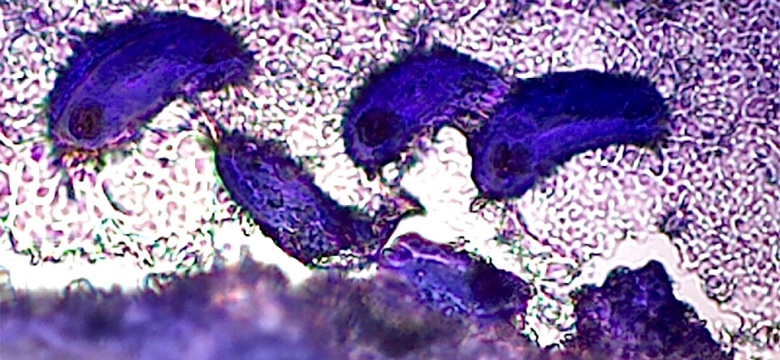Preliminary Findings Released Regarding Recent Fish Die-Off

The Department of Environment and Natural Resources (DENR) today released preliminary findings on the cause of the major fish die-off event that has been occurring around the Island this month. This unusual event has been affecting large numbers of fishes from a wide range of reef fish species, including the ecologically important parrot fishes. However, according to DENR, there have been no confirmed reports of offshore fishes such as wahoo or tuna being affected.
Thanks to the help of several individuals, the Department was able to obtain a few samples of dying and freshly dead fish. A Department spokesperson indicated that, based on their examination of these specimens, the cause of death appeared to be the same gill parasite that was identified in the last major fish die-off - Brooklynella.
A Department spokesperson stated, “A small clip of the gills was taken from each fresh fish specimen obtained and examined under the microscope. In each case, this revealed that the gills were heavily infested with mobile, single-celled parasites that resemble Brooklynella, a species that was linked to the fish die-off event in 2009. Department scientists think that this was likely the cause of death. Other organs from these specimens did not show any obvious signs of pathogenic effects.”
In large numbers, Brooklynella parasites can cause serious damage to the gills of a fish, which makes it more difficult for the fish to acquire oxygen from the water. This generally leads to the fairly rapid death of the fish. As with many micro-organisms, the life cycle of this parasite is accelerated in warmer temperatures. This is compounded by the fact that fish are often stressed when the water is warmer anyway.
Climate data from the Bermuda Weather Service show that the average sea surface temperature during August was 29.9°C (85.8°F), and the average sea surface temperature for this month to date is 29.2°C (84.6°F). These temperatures are 1.6°C (2.8°F) and 1.8°C (3.3°F) above normal for August and September respectively. Seawater temperatures now appear to be dropping in the wake of recent storm activity and it is anticipated that, with cooler water temperatures, fish deaths will decrease.